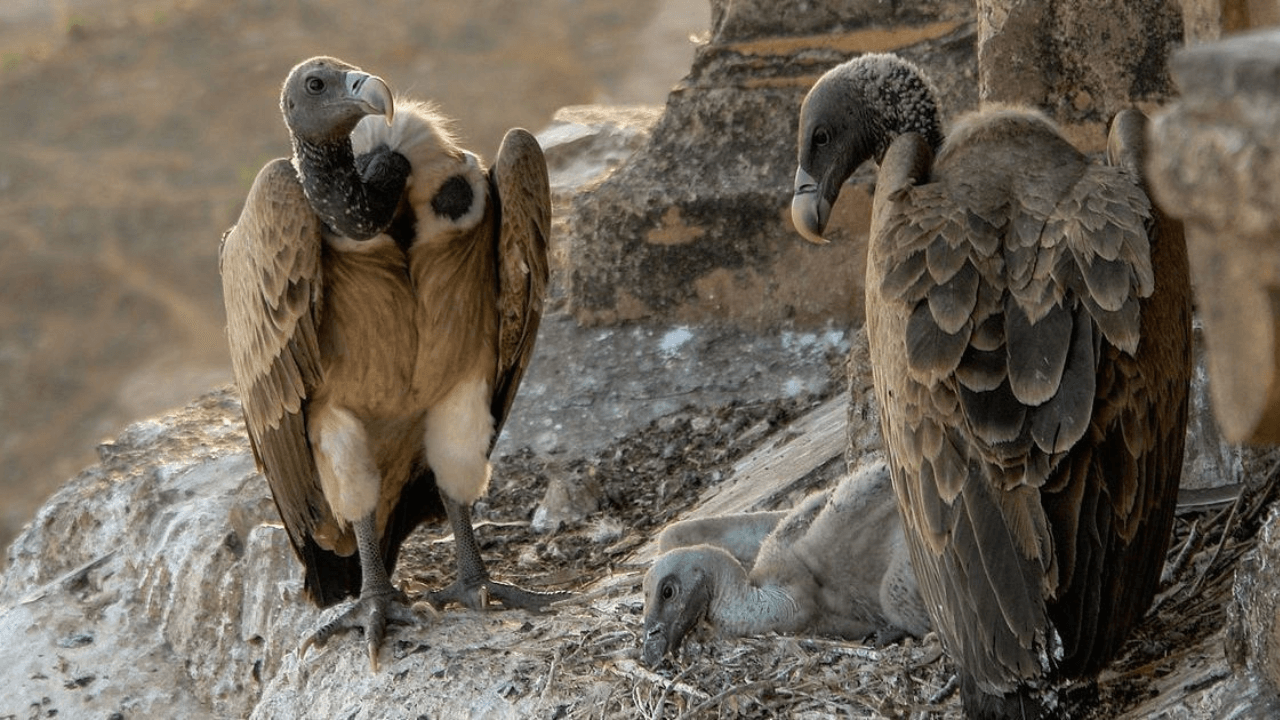As per a notification released by the Union Ministry of Health and Family Welfare on July 31, 2023, the manufacturing, selling, and distribution of ‘ketoprofen’ and ‘aceclofenac’, which are harmful to vultures, along with their preparations, for use in animals are forbidden under section 26A of the Drugs and Cosmetics Act, 1940 (23 of 40).
The Drugs Technical Advisory Board (DTAB) proposed this prohibition.
What are Ketoprofen and Aceclofenac?
These drugs, known as non-steroidal anti-inflammatory drugs (NSAIDs), are commonly used to alleviate pain and decrease inflammation in both humans and animals. However, these substances pose a threat to vultures and other types of birds of prey when they consume the remains of animals treated with these drugs.
Reasons Behind the Ban
- During the 1990s, India witnessed a notable decrease in its vulture population, mainly due to the utilization of diclofenac in cattle.
- This issue is exacerbated by vultures’ slow reproduction rate and the potential for elevated mortality rates. Without effective measures to manage this situation, vultures could be on the brink of extinction.
- Despite the subsequent prohibition of the drug, it will take a considerable amount of time for the vulture population to regain its numbers.
Vultures in India
Vultures are birds of prey that come in medium to large sizes. Their distinct characteristic is their diet of carrion, which involves feeding on the remains of deceased animals.
In India, there are nine species of vultures. Among these, six are resident species, namely the white-rumped vulture, Indian vulture, slender-billed vulture, red-headed vulture, bearded vulture, and Egyptian vulture. Additionally, there are three migratory vulture species: the cinereous vulture, the griffon vulture, and the Himalayan vulture.
Conservation Initiatives
The National Board for Wildlife (NBWL) has given its approval to an Action Plan for Vulture Conservation from 2020 to 2025. Some key highlights of this plan are as follows:
- Vulture Conservation Centre: The establishment of a dedicated center to focus on the conservation of vultures.
- Vulture Safe Zone: Designation of specific areas where vultures can thrive and remain safe from harmful factors.
- Rescue Centres: The creation of four rescue centers in different regions of India – Pinjore (Haryana), Bhopal (Madhya Pradesh), Guwahati (Assam), and Hyderabad (Telangana). These centers will provide essential care for vultures in need, as there are currently no specialized facilities for treating these birds.
- Toxic Drugs Management: Implementation of a system that would automatically prohibit the use of veterinary drugs found to be toxic to vultures. This action will be carried out in collaboration with the Drugs Controller General of India.
- Vultures Census: Conducting a systematic count of vultures to monitor and assess their population trends.
- Database on Threats: Compilation of a comprehensive database detailing the various threats faced by vultures, aiding in better conservation strategies.
These measures are part of a comprehensive strategy to safeguard vulture populations in India and mitigate the risks that have contributed to their decline.
About the Drugs Technical Advisory Board
The Drugs Technical Advisory Board (DTAB) is a statutory body constituted under the Drugs and Cosmetics Act, 1940. It is a part of the Central Drugs Standard Control Organization (CDSCO) in the Ministry of Health and Family Welfare. The DTAB is responsible for advising the Central Government and the State Governments on technical matters arising out of the administration of the Drugs and Cosmetics Act.

Hello, I’m Aditi, the creative mind behind the words at Oliveboard. As a content writer specializing in state-level exams, my mission is to unravel the complexities of exam information, ensuring aspiring candidates find clarity and confidence. Having walked the path of an aspirant myself, I bring a unique perspective to my work, crafting accessible content on Exam Notifications, Admit Cards, and Results.
At Oliveboard, I play a crucial role in empowering candidates throughout their exam journey. My dedication lies in making the seemingly daunting process not only understandable but also rewarding. Join me as I break down barriers in exam preparation, providing timely insights and valuable resources. Let’s navigate the path to success together, one well-informed step at a time.
